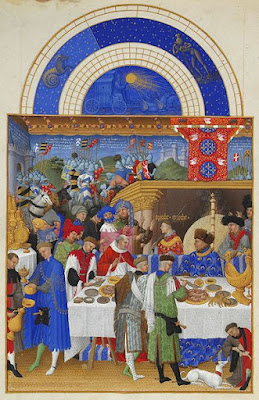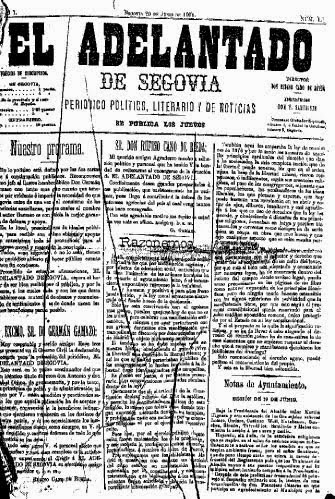As always, I've been reading older books, although Akwaeke Emezi, Kacen Callender and Elizabeth Acevedo have all published new works in May that I'm looking forward to reading.
Thanks to colleagues clubbing together to buy me a gift certificate, I now also have Transcendent Kingdom by Yaa Gyasi and If Beale Street Could Talk by James Baldwin.
In paper form I finished reading the five tales by Nikolai Gogol. In the end, The Tale of How Ivan Ivanovich Quarreled with Ivan Nikiforovich, maybe also Ivan Fyodorovich Shponka and His Aunt, and The Overcoat were my favourites: the scene-painting, the emotions, and even the discomfort of seeing the social inequalities and imperfections that must have been full-blown tragedies in everyday reality.
*
Vaguely I remembered reading Lebanese Australian journalist Rania Abouzeid's posts on Twitter during the early years of the Arab Spring. A decade later, it turns out that she wrote at least two books about her experiences: living in Syria with middle-class families, and interviewing protesters and militants across an impressive spectrum.
Sisters of the War (2020) focuses intimately on the lives of two girls and their families: one, from a pro-Assad, Alawite family — the other, from a revolutionary family. Perhaps it is written more for a younger audience, and the intention to draw attention to our shared humanity breathes through every page. I listened to an audiobook that helpfully offered the proper Arabic pronunciations.
 |
| Cover of Sisters of the War (Scholastic Publishing) |
No Turning Back: Life, Loss, and Hope in Wartime Syria (2018) follows adult Syrians as they negotiate their path amongst various anti-Assad groups, culminating in being either witnesses to or also perpetrators of intense violence and in one case even sympathy with Isis. Abouzeid makes an unusual decision not to speak about rape, except when an al-Nusra militant alleges that Alawite prisons perpetrate it against women. While Sisters of the War also proves if proof were needed that she thinks the women's perspective is just as important, the book is guided largely by masculine points of view.
She uses the book to bust myths about the Syrian Arab Spring, and finds the leading threads in the entanglements of different revolutionary groups, al-Qaeda, the Turkish government, foreign intelligence agencies, etc. knowledgeably. (I was following the news at the time and recently rediscovered a diagram I'd drawn of which group or party was linked with which other group or party.)
The food scarcity, cut-off water supplies, self-interested diplomacy, disappearances, technological makeshifts, and bombing of residential areas, in the 2022 invasion of Ukraine; the torture and other abuses that Abouzeid describes in Syrian government prisons that will not have ended with the war; and the legacy that Syrians today still carry —these many open ends and tragic parallels make No Turning Back and Sisters of the War still feel urgent years later.
No Turning Back [W. W. Norton & Company]
***
Public Service Announcement: I'd like to take the opportunity to link to the resources at the Dart Center for Journalism & Trauma. They take a modern approach, founded in mental health best practices and a care for the wellbeing of any journalist, source, and assistant, to understanding, acknowledging, and counteracting the risks of war reporting. On a personal note, I've cribbed some of the ideas here to help cope with work stress unrelated to war.
***
Tilly and the Crazy Eights is a fictional novel that addresses another traumatic history — colonial and post-colonial treatment by Canadian government authorities of Indigenous people.
Monique Gray Smith had already written about Tilly, the youngest of the core cast of characters and a registered nurse who is tasked with caring for her elderly cohort, in another book that I haven't read. In this sequel, she introduces a knitting circle of elderly Indigenous ladies. They decide to travel to the southern United States in a bus, and to try to address something in their own 'bucket lists' — lists of things they would like to have done before they die.
Along their journey they carry their nightmares. For example: often sexually abused in Canadian residential (boarding) schools, many of the elder characters were forced to repress their own language, and taught that their cultural traditions were inferior and wrong. A few older and younger characters are trying to mend broken relationships; one older character has also survived cancer, and another is living with diabetes. In one case, an elder is personally affected by one of the thousands of unresolved murders and disappearances of First Nations women that are rarely prosecuted in Canadian courts.
I appreciated that the author included an Indigenous woman who came out as a lesbian during the feminist Second Wave in urban Canada, a perspective which one doesn't read about that often and is well (if sparingly) presented here.
Gray Smith guides the plot perceptibly with magical realism and other devices to the conclusions that she wants. I'd argue that a firefly that zooms in during a crisis moment like a B2 bomber, is not really a fair analogue to the coincidences and talismans that we sometimes look for as guideposts in life, for example. Some of the humour is maybe a little corny — realistic for the cast of characters, and yet I did feel the urge from time to time to stick a fork in my eye.
But I loved the genuine warmth in Tilly and the Crazy Eights.
The road trip itself — a writing challenge to the greatest literary genius and the 'merest plodder' alike — is well executed. Gray Smith gives tastes of the scenery and locations at just the real pace and depth of highwayside observation, not weighing down the book with pedantic exposition about historical, geographical or cultural minutiae.
 |
| Cover of Tilly and the Crazy Eights (Second Story Press) |
***
Lastly, I read Efrén Divided, by Ernesto Cisneros, and some of The Ghost Squad, by Claribel Ortega. The first book — which explores the effects of American immigration law enforcement in the 2010s on Latino-American families from a teenage boy's perspective — especially is wonderful and a 'tear-jerker', not necessarily just for tween and teenage readers. The publication year of The Ghost Squad is a little unfairly positioned chronologically, between the Harry Potter books, which also deal with magic, and were published before Ortega's book, and the film Encanto, which also deals with magic, and was released after Ortega's book. If you're interested in imaginary young people doing fun magic for good causes, I recommend Encanto.










